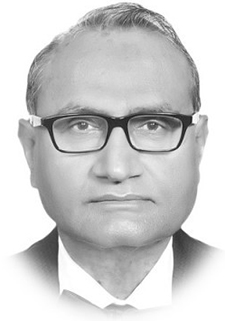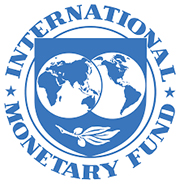Sand in the Oil of the Supply Chain

Forecasting oil prices is doubtlessly a hazardous business and no global forecaster worth his salt was able to predict the free fall in oil prices.
Let me at the very outset dismiss the theory that the current petrol crisis is a conspiracy against the government.
All the actors here are from the inner circle of the government - kitchen cabinet members, trusted bureaucrats, lame-duck regulators and a public-sector entity on the privatisation list.
It was all in the family and, therefore, a case of collective incompetence. A minister’s claim about a sudden spurt in demand is nonsense.
Forecasting oil prices is doubtlessly a hazardous business. No global forecaster worth his salt was able to predict the free fall in oil prices.
However, a rise in demand after falling prices is simple economics and did not happen while the minister was asleep. Whether the petrol price in Pakistan was reduced to deflect attention from the dharnas, is another matter. At any rate, the rise in demand was not so much that it would trigger a crisis.
The problem lies on the supply side. This supply chain is uniquely complex. It is a sellers’ market, dominated by cartels. Contracts require careful advance planning and unfettered access to liquidity. This is the role that Pakistan State Oil (PSO) must perform as a business concern, but is disabled by a procrastinating bureaucracy and intrusive ministers.
Oil is Pakistan’s largest consumer of foreign exchange and a major source of revenue. Unable to meet its fiscal deficit and net reserves commitments with the IMF through normal tax and export measures, the finance ministry drags its feet in paying the power producers the subsidy bill.

The water and power ministry fails to ensure that the technical and transmission losses are within reasonable bounds and outright theft does not take place. Power producers must have the spine to collect their bills, from the federal as well as provincial governments.
The fact is that the power producers defaulted on payments to PSO. These payments relate to furnace oil used to produce power, not petrol, the payments for which do not involve the government. But the liquidity constraints imposed by the receivables due to furnace oil adversely affect the overall liquidity position of PSO.
This time round, PSO was not only on the receiving end of the problems caused by the circular debt, it was also hit hard by the finance minister’s mad pursuit of pushing the dollar down vis-a-vis the rupee. Stopped from buying dollars and unable to realise receivables, even the handpicked management of PSO let it be known to everyone early enough that it simply had no cash to import petrol.
Once the lack of cash disrupted import, other factors exacerbated the crisis. These included the failure to maintain the stipulated strategic reserves, closure of an oil refinery, transport bottlenecks caused by fog in Punjab, overcharging at the station level and petty attempts at hoarding by a panicky public. Speculators may have attempted to make a fast buck in league with officials. Management of reserves of a volatile commodity like petrol is not easy.
Fluctuating prices impose costs that are higher than the costs of ordinary inventory management. To prepare PSO for eventual privatisation, the size of the strategic reserves was reduced during the rule of General Pervez Musharraf. It is now enough for 20 days, with about two-thirds maintained by PSO. A professionally weak and arbitrarily run Ogra, with an extended deadline granted to complete storages, failed to ensure reserves for 20 days.
All leads point towards the supply chain. As ministers pass on the buck, a judicial inquiry may be necessary. Meanwhile, the government should resist the temptation to deregulate petrol pricing and privatise PSO.
The cure can be worse than the disease.
Source: The Express Tribune
Related: Global Growth Revised Down, Despite Cheaper Oil, Faster U.S. Growth

Article Topics
International Monetary Fund News & Resources
World Economic Outlook 2017 Update IMF Boosts Global Economic Forecast for 2017 2016 Global Economic Growth Will Be Disappointing Sand in the Oil of the Supply Chain Global Growth Revised Down, Despite Cheaper Oil, Faster U.S. Growth Why is U.S. Manufacturing Allegedly Thriving? World Economic Outlook - Legacies, Clouds, Uncertainties More International Monetary FundLatest in Other
Trucking Industry Pushes Back on Government’s Electric Mandates Senators Take Aim at Amazon with Warehouse Worker Protection Act Maersk Sees Silver Lining in Red Sea Shipping Challenges Happy Returns Partners With Shein and Forever 21 to Simplify Returns Baltimore Opens 45-Foot Deep Channel Following Bridge Collapse El Paso Border Delays Cost Juarez $32 Million Per Day in Economic Losses Walmart’s Latest Service: Ultra Late-Night Delivery More Other













